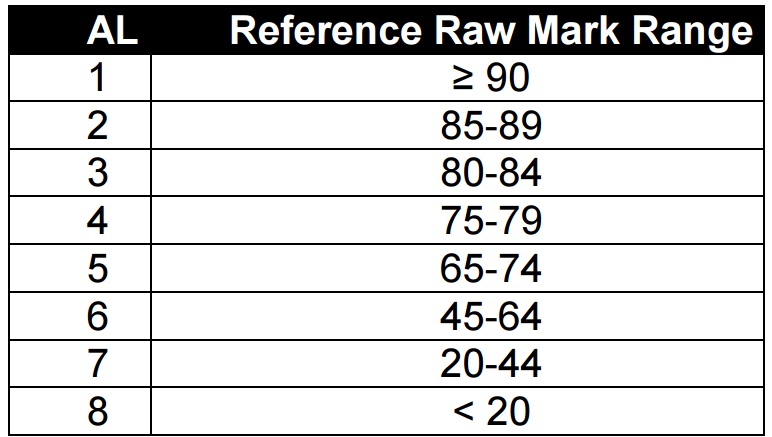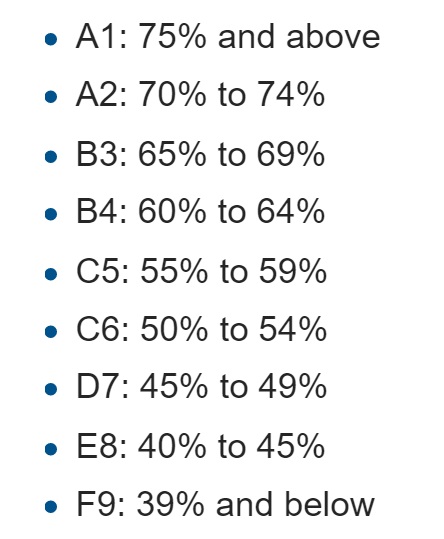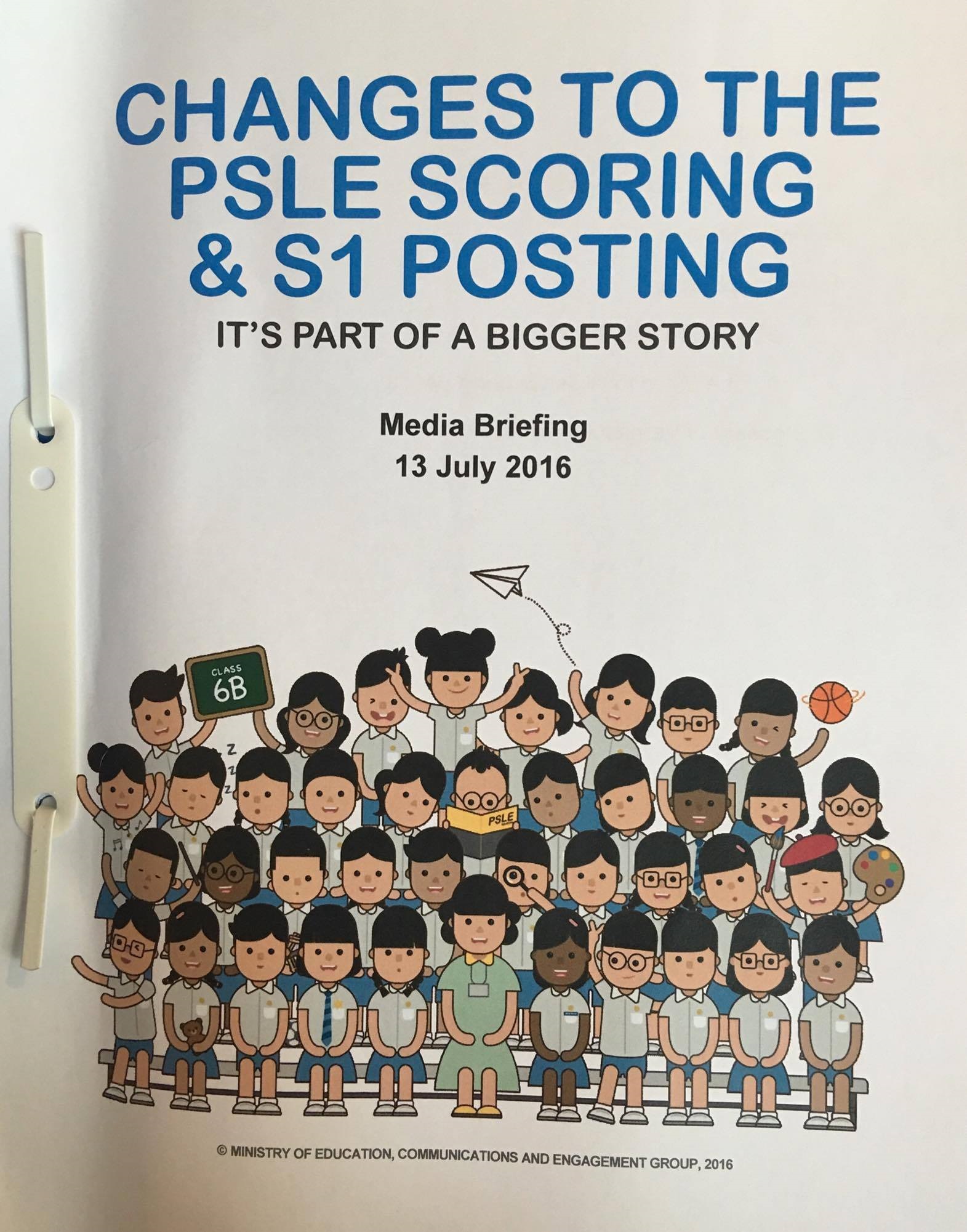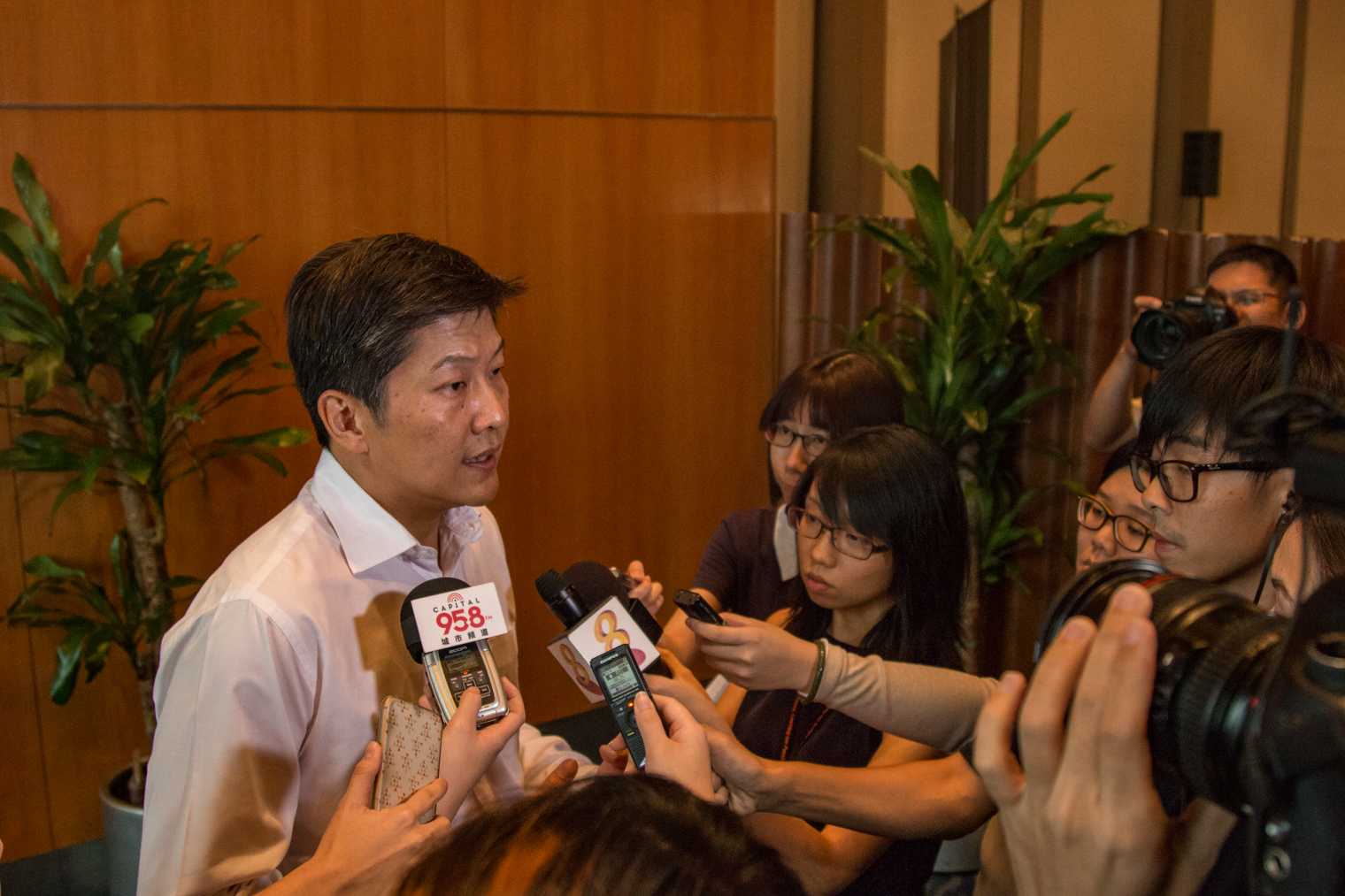So the Ministry of Education (MOE) has decided to do something about the Primary School Leaving Examination (PSLE) scoring system yesterday (July 13).
Parents had been eagerly anticipating potential changes to the PSLE scoring system when it was first mentioned by Prime Minister Lee Hsien Loong in his 2013 National Day rally speech.
During his speech, PM Lee spoke about reducing the over-emphasis on academic results and allow students more time and space to develop holistically.
The anticipation of many can be seen by the presence of almost all the local media including online sites at the MOE media briefing yesterday.
But it is not a revolutionary change as one would expect. Secondary One postings will continue to be based on academic merit. The slight tweak of course is that the choice order of schools will play a bigger part since more students may have the same AL scores.
So here are a few takeaways from the PSLE new scoring system announcement.
1. PSLE's Achievement Levels (ALs) is like GCE 'O' Levels but more competitive for the high achievers.
The new system will be less finely differentiated than the old system. For instance, a one-point difference in the old PSLE scores may make all the difference in a child's secondary school posting.
The new scoring system means that there will be only 29 possible PSLE scores, compared to the more than 200 T-score Aggregates under the current system.
However, it is more competitive for high achievers as a grading system if you compare the new system with the Singapore-Cambridge GCE Ordinary Level examinations in Secondary Four.
New PSLE system
 Source: MOE
Source: MOE
GCE 'O' Levels
 Source: Wikipedia
Source: Wikipedia
A young primary six student who scores 75 and above can be graded from AL1 to AL4, while a secondary four student who scores 75 is awarded A1.
In its press release, MOE noted that "the upper ranges are narrower because the PSLE is designed such that students are able to show what they can do and a large majority of students do well for the PSLE".
It added that "about half of the students will score AL4 or better" on average.
MOE is kinder in its AL grading for the average performers though.
If we compare AL and GCE O levels for the average performers, we noticed that the range is wider for the "passing mark".
While the range for a C6 (pass) in GCE O levels is 50-54, the range for an A6 in PSLE is 45-64.
2. Slowly, slowly, steady as Ah Boy/Girl goes.
It was the slaughter of a "scared cow" that has been around for more than 40 years.
Appreciating the sensitivity of such changes for students and parents, MOE decided to go slow. Real slow.
For instance, the new system will only be implemented six years later in 2021.
We can only guess that MOE felt that the change, while it's not bold enough for some parents, may still be too radical for others.
This is because T-score is almost as old as Acting Education Minister Ng Chee Meng, who was born in 1968.
T-scores were introduced in 1973, five years after Ng was born, but not revealed to the students. It was declared publicly to all students nine years later.
Anyway, it is clear that MOE and Ng preferred to play the change down.
"It's part of a bigger story", was how MOE wishes to emphasize in its media briefing.

And talk of a "revolution" in the PSLE scoring system was politely dismissed by Ng.
Ng told the media that "some things are best evolved and not revolutionised”.
“Our educators have done very well over the past 50 years to prepare our children to meet challenges,” he said. “So in such a good system – I think it’s premature to revolutionise it, until such a time that we are clearer.”
3. MOE has made the first move, will the kiasu enlightened parents do their part?
MOE has made the first move in tweaking a scoring system that grades a student based on his/her performance, rather than his/her performance relative to his/her peers.
But Ng said that it's premature to revolutionise the PSLE system, "until such a time that we are clearer.”
Hence, this is the moment when parents have to send clear signals to the government by reducing the "arms race" on PSLE scores.
Will they now aim for the top AL score of 4? Or will they just be happy if their kids can enter into the Express Stream (which is between 4-20 points)?
Their attitudes will affect whether the new PSLE system can move towards the GCE 'O' levels system or whether the scoring system can be "revolutionise(d)" into something even less differentiated than the 29 possible PSLE scores in 2021.
Maybe, just maybe parents will be fine if their child is told only if they passed or failed.
Like those days in 1960s and early 1970s.
Mind you, PM Lee only knew that he passed his PSLE. And he didn't do too badly in his life.
"Just to put this in perspective - the PSLE, everybody thinks it matters, heaven and earth. But I do not know what my PSLE grade is. I think many of you who are my age do not know what your PSLE grade is either because when I took the PSLE nearly 50 years ago, in fact, 50 years ago in 1963 already, the scores were confidential. MOE never told anybody the scores. The students were only told whether they had passed or they had failed and which school they had been posted to. So we were all gathered in the car park in Nanyang waiting anxiously while the teachers went through the list and tallied up who passed, who failed and then came out after a very long wait and told us who passed, who failed. Luckily, I passed!" National Day Rally 2013 Speech
Related article:
Everything you need to know about the new PSLE scoring system in 60 seconds
If you like what you read, follow us on Facebook and Twitter to get the latest updates.
If you like what you read, follow us on Facebook, Instagram, Twitter and Telegram to get the latest updates.
